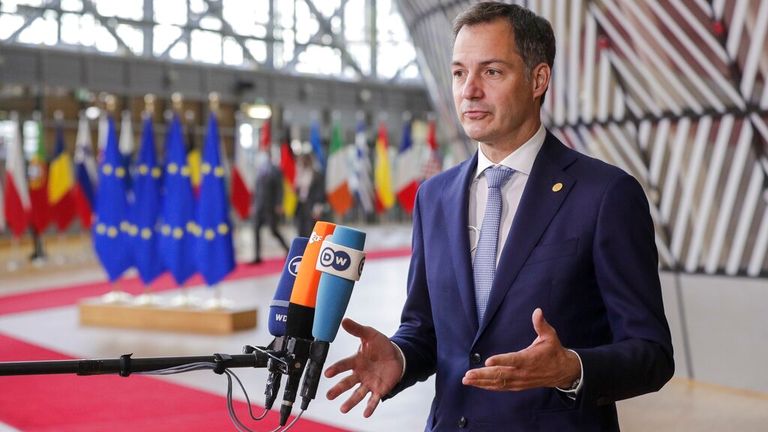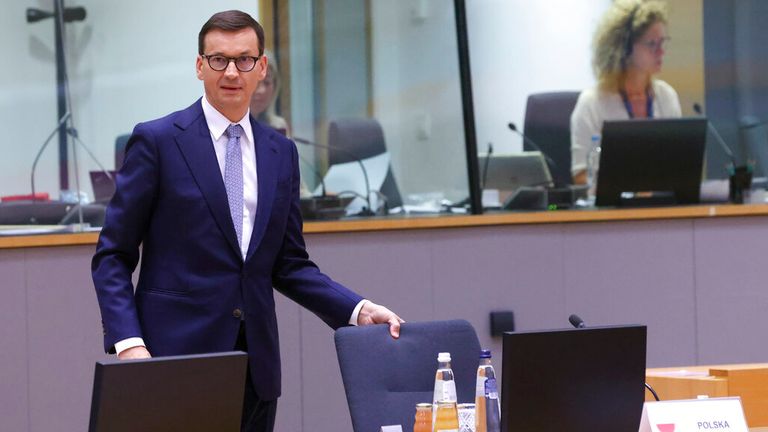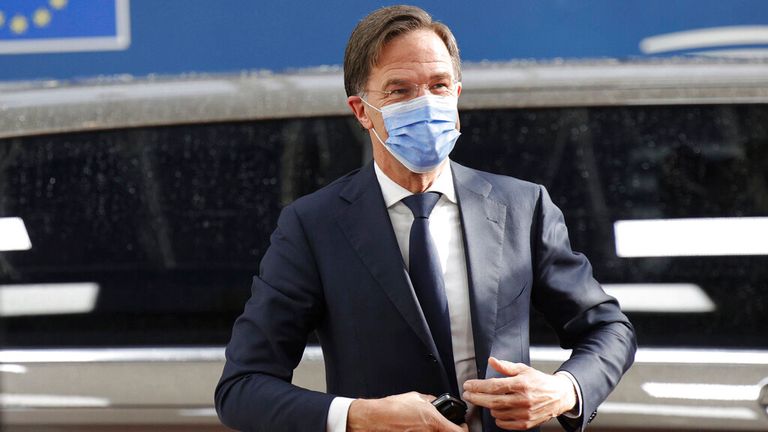The argument now distracting and dominating the European Union is an unequal battle with the potential for far-reaching consequences.
On one side is Poland, enthusiastically supported by Hungary, and determined to prove that one of the fundamental tenets of European solidarity isn’t so fundamental after all.
On the other side is, well, just about everyone else. Some of them pressing for a conciliatory “let’s not be too harsh” debate; others wanting to go in hard.
The cause of all this anger is one of those bits of domestic news that sounds dry but has explosive potential.
In short, the country’s top court, acting on a request from Prime Minister Mateusz Morawiecki, declared that, in some areas, the national constitution took precedence over European law.
And that has set great, big alarm bells ringing. Because the golden rule of EU Club is that EU Club laws always come first. They must take primacy, to coin a phrase that has popped up a lot over the past few days.
“If you want to have the advantages of being in a club, then you need to respect the rules,” Belgian Prime Minister Alexander de Croo said. “You can’t be a member of a club and say ‘the rules don’t apply to me’.”
The Polish Prime Minister does not agree, accusing the EU of “blackmail” because of suggestions that Poland could now face sanctions. He said his country was “ready for dialogue” but refused to distance himself from the controversial court ruling.
There is no mechanism for throwing Poland out of the EU (not that anybody would want to go anywhere near that far) and, realistically, Poland has no desire to leave, either. So instead, the question is whether the EU wants to levy a punishment.
That could mean withholding financial payments, for instance, or curtailing the country’s rights as a member state.
It wouldn’t be unprecedented – Poland is already facing daily fines of half a million Euros for continuing to extract lignite from a mine near the border with the Czech Republic in defiance of a court order. There is a suspicion that Mr Morawiecki is rather relishing his battle with Brussels.
But he is not alone. Viktor Orban, the populist Prime Minister of Hungary, has repeatedly infuriated the EU with his own policies. Here, he came to town ready to leap to Poland’s defence.
“Poland – the best country in Europe – there’s no need to have any sanctions,” he said.
“We are not building fronts here, we are fighting for issues which are important for our own nations. So we make an alliance and fight together – this is the logic we are doing here. It’s not like the cold war or something like that, creating blocs.”
So, I asked Mr Orban, did he agree – did he think that Hungarian law held primacy over EU law?
He smiled. In fact, he almost laughed. “The fact is very clear that the primacy of EU law is not in the treaty at all. So the EU has primacy where it has competences. The question is about the competences.
“What’s going on here is that – regularly – European Institutions circumvent the rights of the national parliament and government and modify the treaty without having any legitimate authority to do so. So the Polish are right.”
He told me there was no schism between the east and west of Europe, but rather “between common sense and non-common sense”. With a shrug, he declared that the idea of levying sanctions against Poland was “ridiculous”.
So we are heading for a proper row. Is it worth it – the EU going into a political battle with one of its own members? It’s a question I put to the Dutch Prime Minister, Mark Rutte.
“I think we have to be tough but I think the question is how do you get there,” he told me. “My argument will be that the independence of the Polish judiciary is the key issue which we have to discuss and we have to settle.
“Poland has to take the necessary steps – that is non-negotiable. This has to do with the foundations of our democracy in this part of the world. So here we cannot negotiate.”
Of course, the EU has plenty of form at creating a crisis, only to then come up with a way to solve it. But this doesn’t feel stage-managed. It feels awkward and painful – the Germans, for instance, don’t seem to want to interfere, but nor do they want to be seen as too passive.
But Poland has popped up repeatedly in recent missives from Brussels. Its border with Belarus has been the site for migrants being pushed towards Europe by President Lukashenko, only to be stopped in their tracks by the Polish police.
Its rules on LGBTQ+ rights have been widely criticised, as have the country’s laws on equality.
And, just like Mr Orban, Poland’s prime minister seems to see political capital in having a row with other EU leaders (especially ones from the west) while retaining the financial advantages of EU membership.
So this won’t end with Poland leaving, or being dismissed from the club. But we may be heading for an almighty row, that leads to… we don’t know where.



